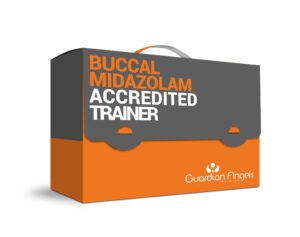
Adrenal Crisis Treatment Training
Our course covers all fundamental information surrounding Addison’s disease: its causes, symptoms, treatments, prevention as well as what to do if someone has an Adrenal Crisis.













Our course covers all fundamental information surrounding Addison’s disease: its causes, symptoms, treatments, prevention as well as what to do if someone has an Adrenal Crisis.


The “Understanding Suctioning Techniques and Practices” course is meticulously designed to provide healthcare professionals with comprehensive knowledge and practical skills related to suctioning procedures.


Our Anaphylaxis training course has been designed for anyone who needs training in how and when to use an auto injector for the treatment of anaphylaxis.


This course offers thorough training to ensure healthcare professionals can confidently provide bowel care, promote patient comfort, and prevent complications.


The course aims to provide delegates with a comprehensive understanding of epilepsy, as well as the rescue medications used in the treatment of epilepsy, ensuring that they leave with the necessary skills to safely administer such medication in an emergency.


The course ensures staff are compliant with all requirements of the NHSCSP, but also covers a wide range of related modules including communication with patients, Cervical Intraepithelial Neoplasia (CIN), referring to Colposcopy and more.


This course focuses specifically on how to observe both conscious and unconscious patients on a clinical level in order to determine when and where any given action must be taken. From casual ward observations to more intensive and demanding patient supervisory roles.


We have developed a package of complex care training courses and competency assessments that can be delivered individualised to the persons medical and social needs.


Delegates will learn how to appropriately assess the deteriorating service user and implement emergency interventions whilst waiting for other medical professionals.


Our diabetes and insulin training course is ideal for residential care providers, as well as home care providers, supporting individuals with diabetes in the community.


The dysphagia training course will also cover swallow assessments and risk management strategies of caring and supporting service users with swallowing difficulties.


This course is ideal for healthcare professionals, medical students, audiologists, and anyone interested in gaining in-depth knowledge of ear anatomy and the diagnostic technique of Otoscopy.


This comprehensive course is designed to equip healthcare professionals with a thorough understanding of microsuction techniques, providing them with the knowledge and skills needed to perform this procedure safely and effectively.


The course covers a wide range of ear care topics from tinnitus to ear drops, as well as giving delegates a detailed understanding of the anatomy and physiology of the ear itself.


Healthcare professionals including nurses and doctors who are expected to administer ECGs as part of their daily responsibilities will benefit from undertaking this particular training course.


The Level 3 Award in Epilepsy and Buccal Midazolam RQF, which is regulated by Ofqual, is the most comprehensive recognised qualification in epilepsy, seizure first aid and Buccal Midazolam.


Our Epilepsy Awareness course introduces delegates to the essential basics of epilepsy as a neurological condition. The training course covers its causes, symptoms and how to properly approach and manage epileptic seizures.


This course is suitable for healthcare workers who wish to deliver clinical skills previously undertaken by medical or nursing professionals in care home settings.


Our course has been designed to help care providers in training assistant practitioners to ease the workload of registered practitioners and provide patients and service users with exceptional care.


Vaccination and immunisation training is essential in helping to prevent disease. Vaccinations allow people to build up immunisation to certain diseases such as the flu. They do this by training the immune system to identify and combat specific pathogens using antibodies.


This Intravenous (IV) Cannulation and Intravenous (IV) Medication Training delivers essential training for nurses, midwives, and allied healthcare professionals who are required to insert a venous cannula and /or administer intravenous (IV) medication.


This course offers guidance on coping with loss and the process of grieving. It will benefit delegates who may have contact with the bereaved, or need to cope with the loss of a person for whom they have cared.


Our course is designed to provide healthcare professionals with the knowledge and skills necessary to effectively assess, manage, and provide safe and appropriate treatment for individuals with earwax buildup (cerumen impaction).


This course is designed to give delegates the knowledge and understanding of how to deal and manage blood or body fluid spillages.


This course is an essential program designed for healthcare professionals seeking comprehensive knowledge and skills to effectively manage medical emergencies arising in the context of eating disorders.


Our Nasogastric Feeding and Care training is an extended course covering a wide range of topics. It has been designed for those working in clinical settings, required to provide enteral nutritional care. The course ensures delegates are competent in feeding and NG tube management.


Our Nasogastric (NG) Tube Insertion training ensures health and social care workers have the necessary knowledge and skills to provide care for individuals requiring insertion of a nasogastric tube.


Our Observation Skills of Healthcare Workers has been designed to communicate the most important information and teachings on the subjects of accurate reporting and effective observation in health and social care settings.


Our Oral Suction training course gives delegates the skills, knowledge and understanding to carry out oral suctioning on patients and service users in their care.


Our Oxygen Administration Training course enables delegates to be able to safely and competently administer oxygen in line with an individual’s oxygen prescription.


The Gastrostomy Feeding and PEG Tube Care course has been designed for any staff member who supports an individual with a gastrostomy, ensuring they have sufficient knowledge to work safely with them and provide “SAFE” care.


Our course is designed to provide healthcare professionals with the knowledge and practical skills needed to safely and effectively insert and manage peripheral intravenous (IV) cannulas for vascular access.


Our venepuncture/phlebotomy course encompasses a wide range of topics related to the taking of blood including the process itself, post-venepuncture/phlebotomy care, potential issues and more.


Our “Recognising and Responding to Acutely Unwell Individuals” course is meticulously designed to equip healthcare professionals with the knowledge and skills required to promptly identify signs of acute illness in patients and respond effectively to ensure timely and appropriate care.


This course focuses on equipping participants with the knowledge and skills necessary to assess, diagnose, and provide effective care for individuals with respiratory conditions. By covering a range of topics related to respiratory anatomy, physiology, assessment, interventions, and disease management.


Our Stoma Care training course gives delegates the required knowledge and skills to provide care and support to individuals who have a stoma, and may require assistance in maintaining both its hygiene and appearance.


Our Stress Management Training course has been designed to touch upon the most important elemental subjects of stress, anxiety and the ways in which all such pressures can be managed in a positive manner.


Our Supervision and Monitoring Training course has been designed to communicate exactly what it is that makes for an effective and professional supervisor while addressing the differences between supervisory and standard employee roles.


This course is primarily for healthcare staff and will provide attending delegates with a solid understanding of the use and operation of syringe drivers, commonly used drugs, maintenance and more.


Our Time Management Training course is all about teaching employees in all industry areas how to take back control of their workloads and ensure that each day is approached in the most efficient manner possible.


Our course is designed to ensure that health care and support workers have the knowledge, understanding and clinical skill to confidently, safely and competently perform Tracheostomy Care to patients and service users.


Our catheter training course has been designed for registered nurses required to carry out urethral catheterisation of patients within their care. Throughout the duration of the catheterisation course, delegates will receive both theoretical and practical training using anatomically correct mannequins.


Our Verification of Expected Death course covers a multitude of fundamentals and advanced skills alike. Topics range from physical examinations to legal policies regarding a patient’s death and the interpersonal skills required to deliver bad news.


The Wound Care training course has been designed around the day to day duties of health and social care workers who may come into contact with any number of minor to moderate wounds during their normal working practices.


The Wound Closure Training Course is designed to provide participants with the essential knowledge and hands-on skills required to proficiently perform wound closure procedures.
